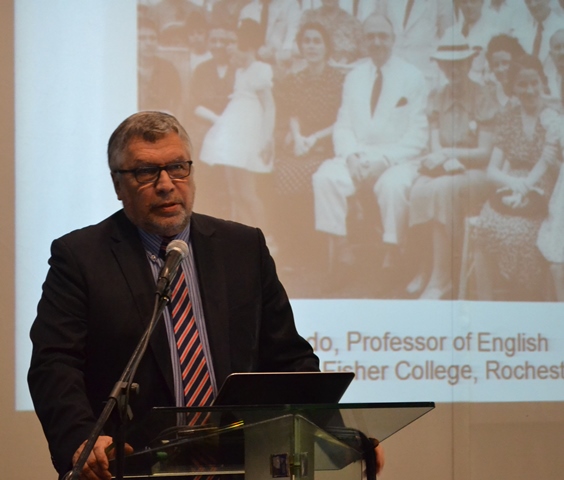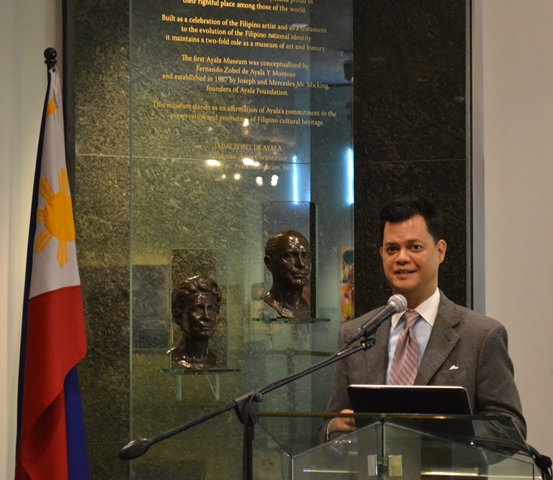In 1938, during a private conversation with then- United States High Commissioner Paul V. McNutt, a plan was laid out for the Jews to settle in Bukidnon to become cattle farmers.
With an initial contribution of $100,000 from the US to buy the land, the Mindanao Exploratory Commission went about trying to make Quezon’s great idea a possibility, except that during the 1940s, the Americans, taking their cue from the rest of Europe, shut their doors firmly to Jews living in Europe.
The Jews in Europe at that time were financially savvy enough to be envied by the Germans. If they were able to make the Negev desert bloom in later years, the future cattle barons would have made Mindanao cattle capital of Asia.
The pork-averse Muslims would have accepted them with open arms, and maybe there would have been no separatist movement born in Mindanao at all.
As fate would have it, McNutt prevailed over Quezon running a country that is virtually America’s colony to carry out his plan to resettle 30,000 Jews. But still, with McNutt’s and other Jews already in the country at the time, the country accepted more than 1,300 Jews to the Philippines in 1939.
Had World War II not started, Quezon would have allowed some more.
In 1938, unknown to the US, the Nazis would encourage vandalism and violence against Jews, called Kristallnacht (night of the broken glass), but America did not feel strongly enough about the abuses against the Jews to allow them to find safe haven in their shores.
That remained a moral stain on their conscience, which led to the US and other countries, after the war, to create a way for persecuted people to seek refuge, so that modern refugee policy today is largely a response to the failures of the Holocaust.
“The civilized world was turned upside down. Their vaunted moral superiority vanished. They became morally bankrupt when they refused to open their doors to Jews fleeing Hitler. Except for the Philippines, which accepted with open arms 1,300 Jews,” Israeli Ambassador Effie Ben Matityau said during the lecture of Prof. Sharon Delmendo at the Ayala Museum.

Israel's Ambassador Effie Ben Matityau
Delmendo is a Filipino-American scholar based in New York who has extensively studied Philippine-US relations. She said it was Quezon who did the sort of heavy lifting to get Jews in the country with Filipinos welcoming them with open arms.
In attendance during the lecture were former Philippine President Fidel V. Ramos, Israel and Austrian embassy officials and representatives from the Quezon family.
Delmendo said Quezon’s plan was to allow 30,000 families to come to the Philippines to settle in Mindanao. They would acquire Filipino citizenship and with a family consisting of both parents and two children or more, it would have amounted to a million persons.
“That was quite a considerable number,” Delmendo said, getting this information through documents she found at the US National Archive in Maryland. She said a cow-raising industry existing with the pineapple industry already in Mindanao would make it possible for the refugees to be financially independent.
“And yet, the US put out obstacle and, ultimately, no Jewish refugee ended up in Mindanao,” she said.
The Americans, fearing the Jews would have made Mindanao a springboard to the US, stopped the flow of refugees.
In the course of her research, she stumbled on the Manilaners, the families of refugees who lived in the Philippines. It was a product of six years of painstaking trips to Philippine libraries including the National Library, Ateneo de Manila University, University of the Philippines in Diliman and Baguio City, and the University of the Cordilleras.
Delmendo said it is very important for the Filipinos to learn this chapter in their history, because the Filipinos were the heroes.
“When the Jews had nowhere to go, they were allowed to come in, and Filipinos everywhere made them welcome,” she said.
Delmendo learned the Manilaner, when they eventually went back to Europe, had brought back with them, fond memories of their stay in the Philippines.
Whereas in Europe, their children would be terrified of the Gestapo, whom they fear would eat their dolls, the Filipinos would asked them to join in games, offered them food and treated them like human beings.
“This is a miracle of human kindness and decency and even now, they sort of cannot believe that,” Delmendo said.
There were over 8,000 descendants of the Manilaners who probably would not be alive today had it not for the Filipinos kindness.
Delmendo likened the Manilaners experiences to refugees from war-torn Lebanon, Libya, Iraq and Syria who find it difficult to find refuge in Europe.
The Manilaners, on the other hand, remembering the kindness their forebears received in the Philippines, mobilized the Jewish community around the world to send help to the Philippines during the wake of Supertyphoon Yolanda (international code name Haiyan) in November 2013.
“The part about Typhoon Haiyan and how the Jewish people really, really rose to the support of Filipinos and raised a terrific amount of money, the Manilaners are actually using the Jewish concept of Tikkun Olam, or to heal or repair the world,” Delmendo said.
Failing to see his Mindanao dream for the Jews come true, Quezon donated his own property in Marikina for their resettlement.
“Quezon made the refugees his next-door neighbors,” Delmendo said.
The resettlement is part of the private estate of Quezon now bordered by Katipunan Avenue and Aurora Boulevard.
Delmendo said he was talking to a Jewish man recently, who said: “The right thing to do is always the right thing to do.”
A documentary she showed at the Ayala Museum is but a small part of a full-length feature she is collaborating with filmmaker Noel Izon.
She is gathering funds for the production of the film, with shooting dates scheduled both in the Philippines and Israel.
Presidential Communications Development and Strategic Planning Office Undersecretary Manuel Luis Quezon III complimented Delmondo’s herculean tasks and for funds to be donated to complete her project.
“Some with experience in academe know that some of the loneliest, longest, least-paid work is that of the scholar, because the scholar who must face many, many tasks must give up time, labor, and must confront the truth wherever the facts, the data will bring her. That is not a recipe for currying favor or for even keeping body and soul together,” Quezon said.

Presidential Communications Development and Strategic Planning Office Undersecretary Manuel Luis Quezon III
Meanwhile, Ramos said the lecture is all about Philippine tradition of hospitality and compassion.
He told of the Philippines’s open-door policy and willingness to accommodate people who need assistance.
Ramos said the Philippines contribute, no matter how modest, including welcoming 5,000 Syrian refugees with financial support of the US.
Aside from the Jews, Ramos said the Philippines has a long history of accepting refugees, including Spanish, Russians and Chinese, with some of them choosing to live in the country permanently.
Ramos also said that in 1995, the Philippines also provided food, health care and education to some 400 Indo-Chinese from Vietnam, Cambodia and Laos, who were resettled in Bataan. He also talked about some 3,000 refugees who were allowed indefinite stay in Palawan as stateless immigrants.